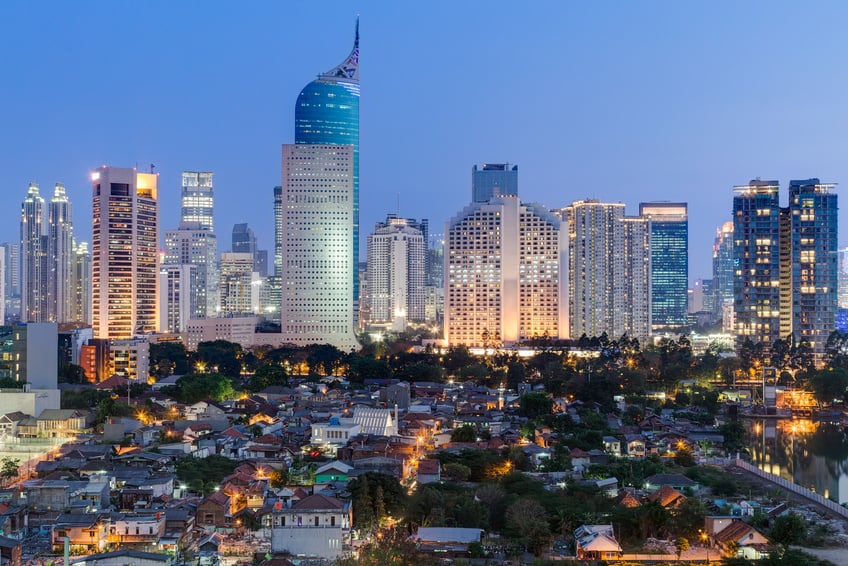On 26 July 2024, the government of Indonesia issued Government Regulation No. 28 of 2024 (“GR 28”), which is an implementing regulation of Law No. 17 of 2023 on Health (“Health Omnibus Law”). GR 28 came into effect on the same day it was issued.
Through GR 28, the government aims to impose control by setting up limits on the maximum content level of sugar, salt and fat (known as gula, garam dan lemak/”GGL”) in processed food products.
On 26 July 2024, the government of Indonesia issued Government Regulation No. 28 of 2024 (“GR 28”), which is an implementing regulation of Law No. 17 of 2023 on Health (“Health Omnibus Law”). GR 28 came into effect on the day it was issued. GR 28 regulates the same main principles as the Health Omnibus Law, but adds more depth and details
On 2 March 2023, Indonesia’s Minister of Health enacted Minister of Health Regulation on Maintenance of Medical Devices in Healthcare Facilities (“MOH Regulation 15/2023”). Under the new regulation, healthcare facilities of hospitals, local governments or communities are required to allocate a certain amount of budget to carry out medical device maintenance. This new requirement is aimed to ensure the availability of medical devices that meet service standards and requirements for quality, security, benefits, safety and feasibility of use in healthcare facilities, and to ensure the safety of users, patients and the environment in healthcare facilities.
On 11 May 2024, the Ministry of Health (MOH) issued circular letter No. FR.03.01/E/884/2024. In the Letter, the MOH announced that a Good Distribution Practice for Medical Devices (Cara Distribusi Alat Kesehatan Yang Baik or CDAKB) certificate will be required as a pre-requisite for the issuance of the product registration (izin edar).
On 11 July 2023, Indonesia’s house of representative (known as Dewan Perwakilan Rakyat Indonesia/DPR RI) approved the 2023 draft health law. A month later, the President enacted Law No. 17 of 2023 on Health (“Health Omnibus Law”) through the state secretariat. The Health Omnibus Law contains provisions on matters such as pharmaceutical preparations, medical devices, healthcare services, healthcare technology (including telehealth and telemedicine), R&D and other compulsory measures.
The Government of Indonesia issued Government Regulation in lieu of Law No. 2 of 2022 on Job Creation on 30 December 2022 (“Job Creation GRL”). This opens the second act of the Omnibus Law following the scrutiny by the Constitutional Court of the formalities in the creation of the original Job Creation Law which was issued in 2020. Content-wise, the 1,117-page Job Creation GRL is a non-identical twin sibling of the original Job Creation Law with substantive changes on halal certification, employment, taxation, and regional government as well as some non-substantive changes in other sectors such as water resources.
The Minister of Health issued MOH Regulation No. 24 of 2022 on Medical Records, which revokes MOH Regulation No. 269/MENKES/PER/III/2008, on the same topic on 31 August this year. The promulgation of MOH Regulation 24 underlines the digital transformation in Indonesia’s healthcare sector, as the regulation sets out detailed provisions on implementing the new electronic medical records provisions for healthcare facilities. The regulation aims to serve as a new legal framework for digital-based and integrated medical records.
Indonesia’s Consumer Protection Law generally takes a light-handed approach to protection of consumer interests. It generally seeks to lay out the principles for protecting consumers’ interests, leaving detailed regulations to the regulators and to industry self-governance. However, it does list specific types of clauses that are prohibited. Anyone who includes prohibited clauses in an agreement would be subject to the threat of criminal penalty of up to five years imprisonment or a fine of up to IDR 2 billion (around USD 130,000). Given these risks, it is crucial for any consumer-facing business to understand what types of clauses are actually prohibited and how it can ensure that it is compliant with these prohibitions.
On 30 August 2022, the Indonesian House of Representatives agreed to pass a law ratifying the Regional Comprehensive Economic Partnership, the largest regional free trade agreement outside the World Trade Organization — involving 10 ASEAN countries and five non-ASEAN countries, i.e., China, New Zealand, Australia, Japan and South Korea. With the passing of this law, which still requires promulgation by the President, RCEP is set to come into force for Indonesia, possibly before the end of the year.






